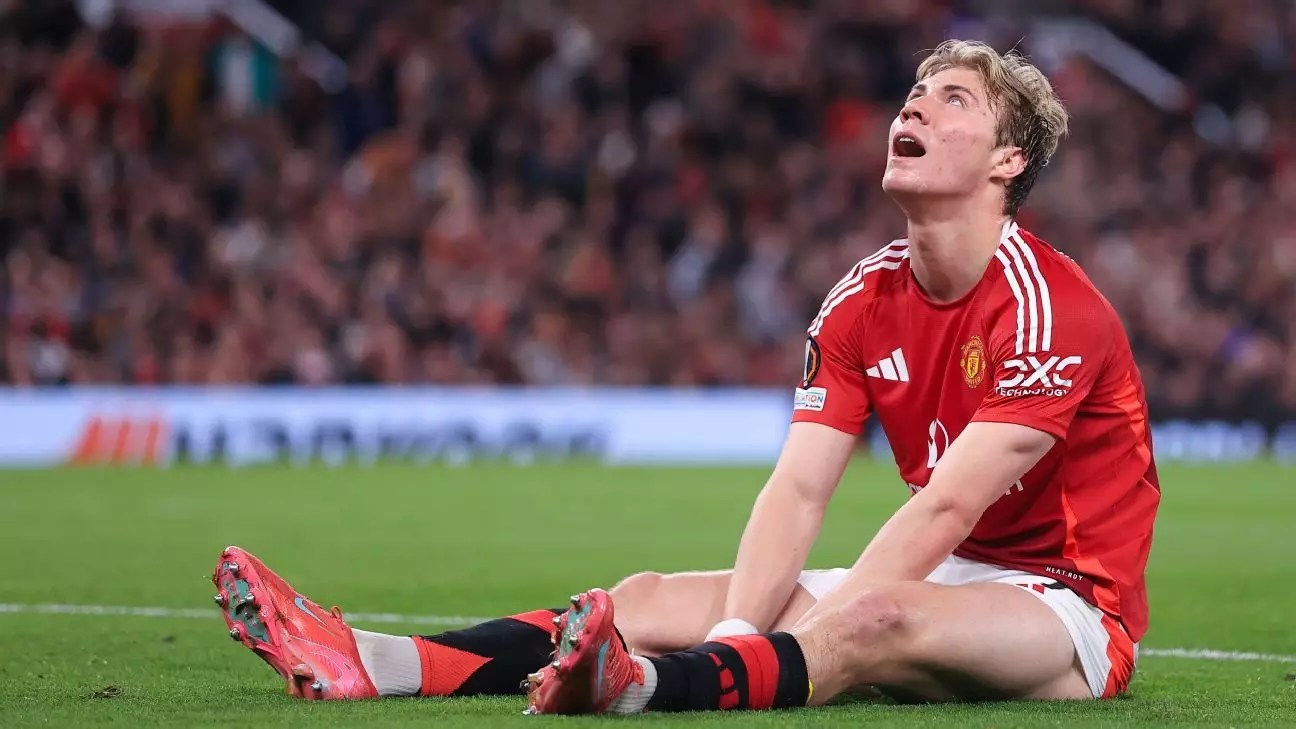In an era where football transfers often resemble high-stakes poker, Manchester United is taking a strategic turn, reminiscent of past trends championed by their former executive vice chairman, Ed Woodward. Woodward’s emphasis on transfer targets with release clauses was aimed at simplifying negotiations and reducing uncertainties surrounding player acquisition. The potential acquisition of Antoine Griezmann in 2017 exemplified this approach; with a clear €100 million buyout from Atlético Madrid, both clubs would be able to quickly determine their next steps. Yet, despite the allure of such straightforward transactions, the transfer fell through, primarily due to the club’s shifting priorities under José Mourinho.
Fast forward to the current transfer window, and the echoes of Woodward’s philosophy are palpable with the imminent arrival of Matheus Cunha from Wolverhampton Wanderers. Triggering a £62.5 million release clause not only signals a return to a methodical approach but also showcases a more disciplined attitude toward spending. Unlike the chaotic expending that has characterized previous transfer windows, United’s management appears to have struck a balance that could set the tone for long-term stability.
Lessons in Fiscal Responsibility
One can’t help but notice a transition in the mindset prevailing within United’s hierarchy. Historically, the club has been notorious for overvaluing players or falling victim to what insiders have dubbed the “United tax,” a premium often imposed by rival clubs when negotiating with a storied name. This notion resonates with other clubs facing similar challenges—Newcastle’s “Saudi tax” exemplifies how market perceptions can skew transfer valuations.
Last summer’s repeated pitfalls—epitomized by the exorbitant fees paid for players like Casemiro and Antony—serve as stern reminders of the consequences of financial recklessness. With substantial resources, United has, paradoxically, found itself ensnared in the very traps it sought to avoid. Signings that once appeared to be reasonable investments have now become the subject of ridicule within club circles. As a result, the board is now negotiating with greater prudence than ever.
Evaluating Market Value: The Case of Rasmus Højlund
The acquisition of Rasmus Højlund from Atalanta further complicates the assessment of United’s transfer values. Initially thought to be valued at around £40 million, negotiations spiraled, culminating in a final fee exceeding £70 million with add-ons. On the surface, this investment seems to project significant promise. Yet, with Højlund managing just 14 Premier League goals over two years, questions about financial prudence have resurfaced. Such circumstances only strengthen calls for a more analytical approach to recruitment.
United’s recent decision to divert from negotiations with Everton for Jarrad Branthwaite further illustrates a newfound resolve to avoid inflated pricing. The resolution marked a deviation from previous management styles, implying a recognition of market dynamics and the importance of a purposeful recruitment strategy. Financial discipline may be the order of the day, but behind the scenes, the commitment to a defined price point offers both a challenge and an opportunity.
The Impact of Financial Tightrope Walks
As the club braces for a season devoid of European football, the pressure to rebuild and acquire talent intensifies. Financial limitations dictate an environment where only disciplined and targeted investments can bear fruit. The commitment from CEO Omar Berrada and others to establish ‘headroom’ within budgets hints at a shift away from a preoccupation with marquee signings and toward a cohesive strategy for team building.
In this context, names like Bryan Mbeumo from Brentford are circulating as potential targets, alongside Eberechi Eze from Crystal Palace. However, it’s crucial to note that ambition must coincide with realism. The decision to forgo high-priced targets if valuations are deemed excessive is a commendable stance, emphasizing sustainability over short-term gratification.
Restructuring the Future: Building an Identity
The overarching narrative remains clear: Manchester United is recalibrating its expectations and ambitions. While the transition towards a more inner-directed approach may initially appear slow, it lays the groundwork for establishing an identity built on fiscal discipline and strategic acquisitions. The pressure to rectify previous errors weighs heavily on the managerial team, yet it’s a necessary component in this new chapter.
Thus, as the new season approaches, Manchester United finds itself at a crossroads. The combination of historical prestige and modern economic realities creates both challenges and opportunities that must be navigated delicately. Nonetheless, should the current strategy yield tangible results, it may well mark the rebirth of a club longing for its form of glory—all while making smart, calculated decisions in the transfer market.


Leave a Reply